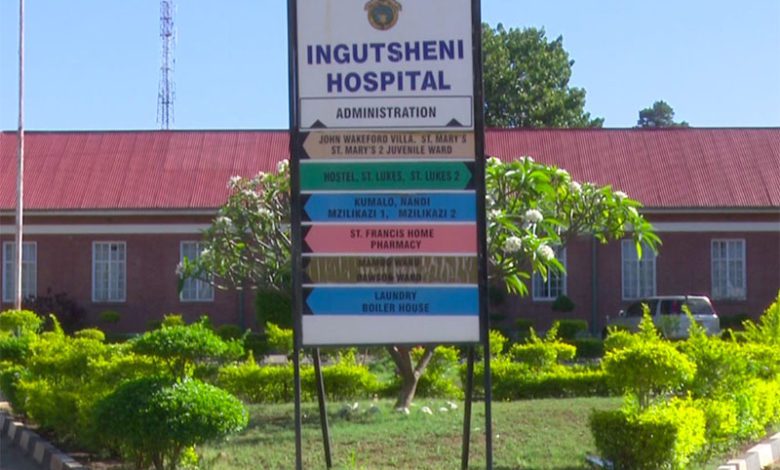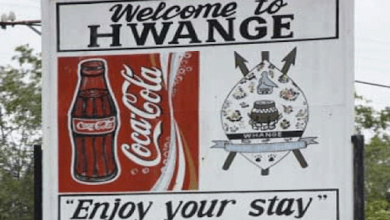Govt’s tight procurement system affects Ingutsheni, as it runs out of food

The depletion of food stocks at Ingutsheni Central Hospital in Bulawayo is a result of the tightening of government procurement procedures to stop unscrupulous activities, the institution’s Chief Medical Officer (CMO) Dr Nemache Mawere has said.
Dr Mawere’s comments follow a letter he wrote to the Evangelical Fellowship of Zimbabwe (EFZ) in which he admitted the institution was in crisis and asked for help replenishing its food stocks, as patients consume 10 tonnes of mealie meal monthly.
The mental facility, Zimbabwe’s largest psychiatric facility, was on the verge of running out of food, leaving authorities concerned about how to feed the patients.
“Due to budgetary constraints the Hospital is now besieged with overwhelming problems such as lack of food provisions, particularly mealie meal and cooking oil of which our stocks are currently fully diminished,” he said in the letter to EFZ.
“As of Tuesday, December 13, 2022, there will be completely no mealie meal and cooking oil to feed the patients. We are in a crisis. We are therefore urgently appealing through your office for urgent assistance.”
In an interview with CITE, Dr Mawere said the tightening of government procurement processes to plug corrupt activities negatively affected the institution from sourcing food as due diligence was carried out.
“Yes, it’s true the situation about food is very bad,” he said, noting that the government is working on the crisis.
“The issue of due diligence delayed things. Some (government departments) were inflating invoices and all, that is where our problem started and getting worse. There was a delay in the procurement system chain and unfortunately, we were on the receiving end.”
The CMO said to avert a crisis, the institution had to send distressed calls to the community.
“We are still in a crisis mode and have been in a crisis mode for more than two weeks,” he said.
“We try to get things goings and have been doing so but the situation has been getting worse and worse.”
Dr Mawere said thanks to society’s responsiveness, patients have not missed a meal.
“Patients have been eating. The letter I wrote to EFZ, which is circulating and done a good job, is because we thought the churches are custodians of the people. People have been having their three-square meals a day. We haven’t had any times where we are forced not to give people food,” he noted.
“Someone sent us 100kg of mealie meal, another 200kg the another 300kg. Society has responded very well to our plea. But we still want more.”
He added that patients “consume 10 tonnes of grounded mealie meal a month and three tonnes of rice.”
“We have over 700 patients’ and mealie meal is our urgent need so that patients have isitshwala,” said Dr Mawere who noted running a mental institution was “not child’s play.”
“The good thing is we are asking and making noise before the situation gets out of hand where people say they didn’t eat yesterday.”
The CMO said Ingutsheni had a vegetable garden, where it was sourcing its vegetables but needed more supplies.
“We had a crisis of cooking oil, now someone has given us cooking oil. We need tomatoes for the relish to come out well. Then if we can get elephant meat, we have been having that for some time but if we can get (beef) meat it’s better,” he said.
Three weeks ago, Ingutsheni officials refuted reports that patients at the mental health institution are suffering from pellagra due to a poor diet.
Pellagra is a nutritional disease caused by a lack of vitamin niacin (vitamin B3) due to the poor diet provided to patients and symptoms typically include inflamed skin, diarrhoea, dementia, and mouth sores.
“l can’t say there’s no pellagra,” said Dr Mawere, explaining that, “sometimes people may be unable to eat properly.”
“Some of our patients are very ill physically as well as mentally, we may bump into cases of pellagra here and there and sometimes, one could have come with it from home as well.”
Dr Mawere said the institution conducted body mass index checks for vulnerable patients and gave them government-recommended food.
“I don’t think we are suffering from pellagra, if it is there, we are on top of that, as it is a sporadic case. The big case is when people say ‘we have gone hungry,’ then we are worried but that is not going to happen where we spend a day without food or miss a meal,” he said.
“There’s a potential of people missing meals then certainly we have to go out to the community and ask while waiting for the government procurement system. The government has been telling us by (today) 3pm they should be done with our due diligence because they do whatever is done. It’s a lengthy process.”






